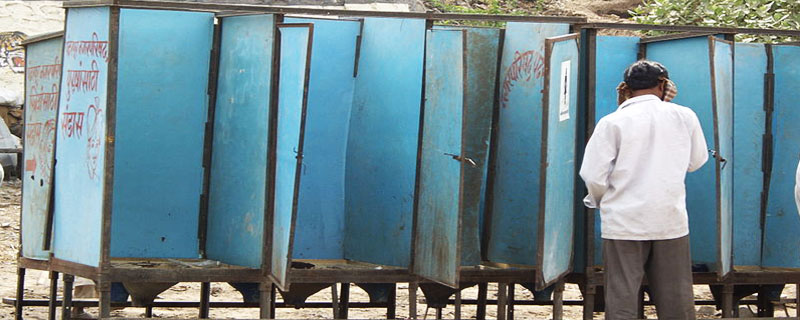Most companies spending their corporate social responsibility (CSR) funds for sanitation focused on building infrastructure and not on operation and maintenance in the past three years. According to a research report published by Samhita Social Ventures, about 75% companies were supporting programmes related to creating infrastructure such as construction of toilets and water facilities with little focus on programmes aimed at influencing behaviour.
Samhita Social Ventures, a social sector consulting firm chose 100 companies with the largest CSR budgets on the BSE 500 list for this study. The report has been facilitated by the India Sanitation Coalition under Naina Lal Kidwai.
Only 15% of companies reported incorporating repair and maintenance of toilets as part of their CSR initiatives under Water, Sanitation and Hygiene (WASH). Corporate India responded well to the government’s call for action on WASH issues with 90% companies reporting at least one CSR activity in WASH. Over the last three years, a total of 164 activities were carried out.
Of these 90 companies, 34 were public sector undertakings. Of the 1.1 billion people in the world who defecate in the open, 59% live in India. It is estimated that inadequate sanitation facilities causes India economic losses of around $53.8 billion a year.
Around 44% of the total population in the country defecate in the open. Swachh Bharat Mission (SBM) an initiative started by the Indian government has an ambitious goal to end open defecation in the country by 2019. The findings suggest that even though many corporate houses have shown interest in creating infrastructure while the operation and maintenance of toilets is neglected. There is a need for incorporating programmes for influencing behaviour.
Only 20% companies reported integrating behaviour change communication in their programmes. North India has over 40% rural households with a working latrine have at least one family member who continues to defecate in the open. This suggests that just creating infrastructure won’t be enough; there is an equal need to focus on changing behaviour and attitudes towards open defecation.
According to this report, CSR in WASH promoted hardware interventions which include creating or supporting the construction of toilets or water storage facilities, the operation and maintenance of sanitation facilities and other related activities. While software-related programmes focus at creating awareness and undertaking activities that influence socio-cultural attitude and behaviour. Even though there is need for tackling open defecation and sanitation problems in both rural and urban India, most of the CSR activities were concentrated in rural areas. There is a critical need to address urban WASH issues, with the growing slum population.
Over 50 million urban slum population is forced to defecate in the open. Slums lacking toilets and community toilets are rendered unusable due to poor maintenance. Urban areas also pose serious health-risks due to lack of sanitation. As per the report, CSR activities in WASH are broadly aligned to the needs of states.
However, most North Eastern states were ignored. States like Maharashtra, Uttar Pradesh, Rajasthan, Gujarat, Tamil Nadu and Karnataka had high rates of open defecation and maximum projects. But states like Jammu and Kashmir, Assam and Arunachal Pradesh which also had high number of open defecation rates were neglected.
63% of urban population in India have access to improved sources of sanitation but the quality of these services remains inadequate and unequally divided amongst citizens.
| CSR Budget | No. Of Companies |
| Less than Rupee 1 crore | 8 |
| Rupee 1-5 crore | 11 |
| Rupee 5-15 crore | 6 |
| More than Rupee 15 crore | 8 |
| Total | 33 |
Top 5 Companies with the largest budget in WASH (Water, Sanitation and Hygiene)
| Top 5 PSUs | Top 5 Non-PSUs |
| Coal India | Tata Consultancy Services |
| Power Finance Corporation | Bharti Airtel |
| ONGC | Bharti Infratel |
| GAIL India | Tata Steel |
| State Bank of India | Mahindra & Mahindra |
“Equitable access to clean water, safe sanitation and hygiene are essential to sustain life. 560 million people in the country continue to defecate in the open and nearly 76 million do not have access to improved water sources.
Looking at the extent of the problem, India in the next few years will probably play the most important role of achieving Sustainable Development Goal to ensure availability and sustainable management of water and sanitation for all.
It won’t be an easy task but given the political commitment towards the cause it is certainly achievable,” says Neeraj Jain, CEO, WaterAid India.


